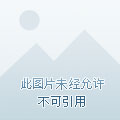
Press: This poem was composed on the eve of Mr. Liao Binyu's withdrawal from school in 2004, and in the spring of 2007, the famous calligrapher Mr. Guo Yuanyuan wrote a book, and the famous painter Liu Yunpeng drew the poetic intention. This article is excerpted from "The Collection of Middle Heaven and Standing".
Heaven and earth,
Counsellor Chemical Education.
Although the heavens and the earth are great,
Stand tall in the sky.
I'm in it,
Meritorious service.
I'm not small,
Give me up who I am.
Professor Zhang Hongxing's Note:
1. Heaven and Earth: It is a Chinese idiom, which means to describe the content of speaking and writing articles that are very wide and extensive. From the twenty-seventh time of Ming Wu Cheng'en's "Journey to the West": "The heavens and the earth are like a rotation, and the first power of flying mountains across the sea." "It is also like wearing heaven and earth, which means that the head is on the sky and the feet are on the ground, describing man living between heaven and earth. The metaphor of Ender is deep and wide, as thick as the sky is high. From "The Fifteenth Year of the Left Transmission". At the same time, there is also an allusion to the Buddha's "heaven and earth" in heaven and earth, which is the most noble and great meaning of admiring Shakyamuni. Song Shi Puji's Five Lantern Society, Volume I: "When His Holiness was born, he pointed to the heavens and the earth with one finger, and took seven steps around, looking at the four directions: 'Heaven and earth, only I am honored.' It also means that man is born from heaven and earth, and is as great as heaven and earth.
2. Counselor Huayu: "Zhongyong": "Only the world is sincere, in order to be able to fulfill its nature; If you can do your best, you can fulfill your human nature; If you can fulfill the nature of man, you can fulfill the nature of things; If you can fulfill the nature of things, you can praise the cultivation of heaven and earth; You can praise the cultivation of heaven and earth, and you can participate with heaven and earth. This means that only the most sincere and pious person can fully realize his own nature; To be able to fully realize one's own nature is to be able to fully realize the nature of others; Being able to help others to fully realize their nature is to fully realize the nature of all things; If all things can fully realize their nature, they can co-cultivate all things with heaven and earth; If you can sponsor the heavens and the earth to cultivate all things, you can be listed as three alongside the heavens and the earth. Ginseng is also "three", so "and heaven and earth ginseng" is juxtaposed with or integrated with heaven and earth. It is another expression of the unity of heaven and man.
3. Who is it to give up me: from "Mencius Gongsun Ugly": "If you want to rule the world peacefully, in this world, who will you give up me?" This is a kind of courage and spirit that should not be compromised and have the courage to take responsibility.
Note: Liao Binyu, a well-known cultural scholar, the resident chairman of the Chinese Culture Promotion Association, the honorary president of the International Yixue Federation, and the strategic development consultant of many local governments and many Fortune 500 companies. Distinguished Professor of Peking University, Tsinghua University, Renmin University, Chinese Academy of Social Sciences and many other well-known universities and research institutions. Over the years, it has been committed to promoting modern civilization with traditional culture, building a Chinese discourse system, and promoting the cultural self-confidence of Chinese based on Chinese culture. He has published more than ten academic monographs and ideological treatises, such as "The Purpose of Guoxue", "Lao Tzu Huitong", "Ganzhi Philosophy", "Pingxin Ping tianxia", "The Way of Dacheng", "Zhongtian and Liji", and the compilation of "Changing People through The Ages".